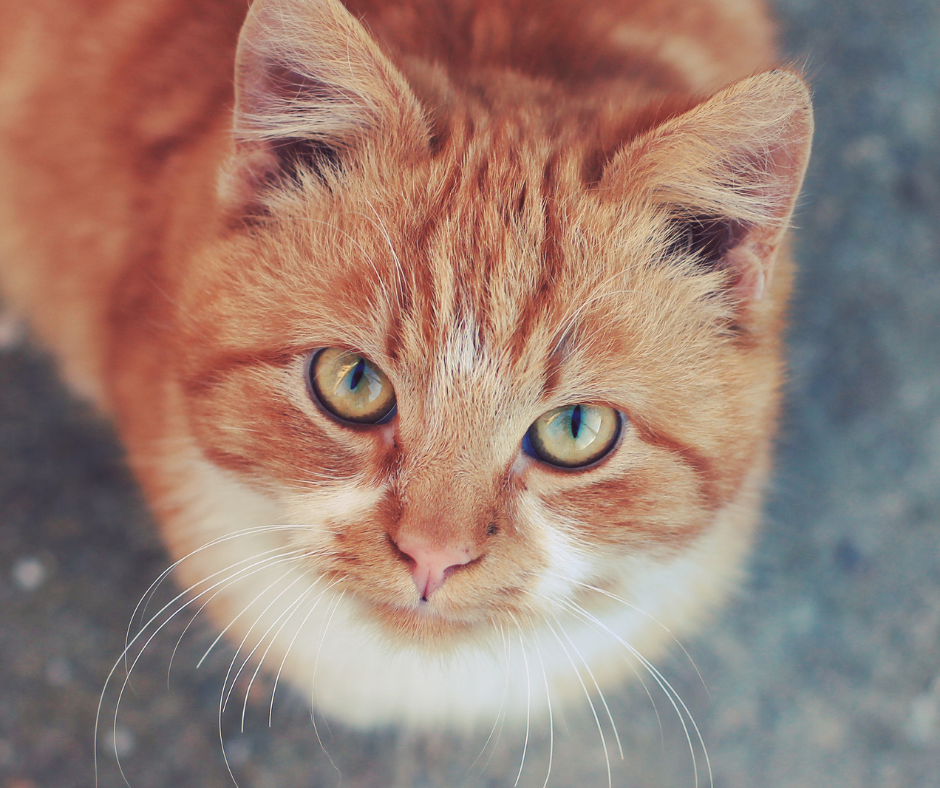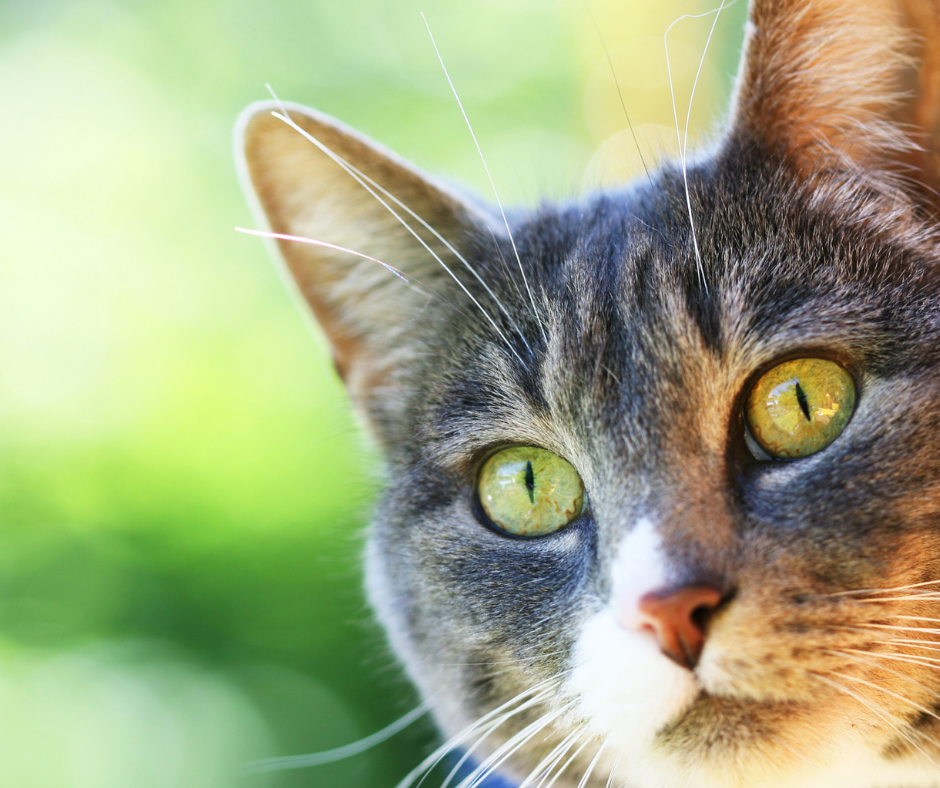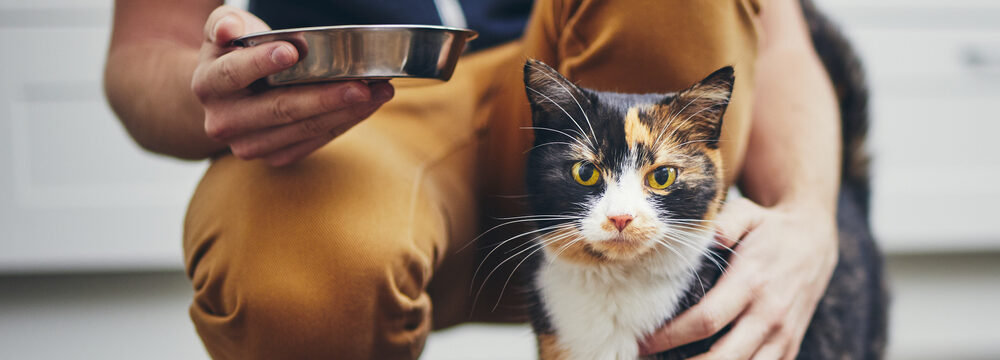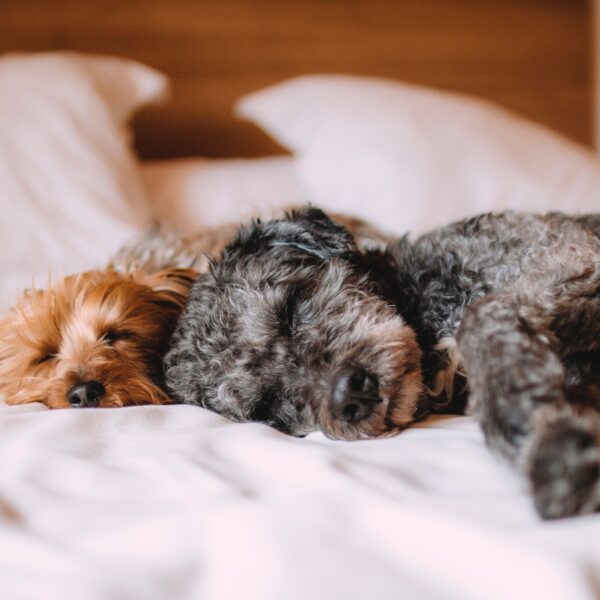Your cat food questions answered.
Our feline friends are known as obligate carnivores, sometimes referred to as ‘true carnivores’. This means that meat or fish should always be on the menu, as they have an essential need for nutrients that can only be met through eating animal protein.
When choosing a diet for your pet, there are a few things to consider: should you feed wet or dry cat food, is the diet suitable for your cat’s age and lifestyle, and how much cat food per day should you feed? Read on for the answer to some of the top cat owner queries.
Can a cat be vegan?
Cats cannot be vegan as they are obligate carnivores, and eating animal protein is necessary for their health. Cat nutritional requirements are different to ours, as they need higher levels of protein, and different essential amino acids. A range of other nutrients are also really important, such as Vitamin B12 which is tricky to source from plant-based foods. It’s therefore not possible to find a natural vegan diet that’s suitable for cats, and home-made veggie and vegan diets will be inappropriate as they typically result in nutritional deficiencies. However, there are now some commercial options available that contain synthetic ingredients to provide the essential nutrients. It’s always worth consulting with your vet before switching to one of these diets though, and there are also ethical considerations around whether we should be feeding plant-based diets to animals that have evolved to eat meat.

Is cat food bad for dogs?
We recommend feeding your pet a complete, high-quality diet that is designed for the right species. Dogs have different nutritional needs to cats and are actually omnivores, rather than carnivores. Their diets tend to have a higher proportion of vegetables, and less animal protein. In general, if your pooch gets at the cat food once in a while they will most likely be fine, although you should keep an eye out for diarrhoea. Longer term, however, feeding dogs cat food can lead to problems such as obesity or pancreatitis (inflamed pancreas).
Is my cat overweight?
The best way to check whether your cat is carrying too much extra flab is to check their body condition score rather than their weight. Body-weight alone is not the most helpful metric because, just like people, cats can vary in height and length. Check out these size-o-meters from the PFMA (Pet Food Manufacturers’ Association) which are really easy to use, or ask your vet for tips.
If your cat is overweight, it is worth chatting to your vet for advice and to check for underlying medical causes. They may be able to suggest a ‘therapeutic diet’ that is formulated to best promote weight loss at a healthy rate. These should only be fed under veterinary advice, as they sometimes contain nutrients in higher or lower quantities than those needed by an animal that is a healthy weight. In general, a dry cat diet may be more suitable as it can be easier to find lower-fat options. For felines that particularly love their kibble, you could try a puzzle-feeder as these can help make mealtimes last longer. You will usually find a cat feeding guide on the pet food packaging that takes into account your pet’s weight and activity level. This is a good starting point, although you should increase or decrease your pet’s daily ration to maintain a healthy body condition score. Also, make sure you factor it in if you’re giving any treats or other extra snacks!
Food cats can eat
Feeding cats a complete, balanced diet will give them all the good stuff they need in terms of vitamins, minerals and other nutrients. This means they don’t need to be fed any extras, but it is ok to give them an occasional treat to help encourage pet-owner bonding. We would recommend special cat treats, as these will be safe for your pet and some human foods are actually poisonous for felines. However, there’s a few options that are ok in small quantities: lean meats (with skin and bones removed), plain white fish or scrambled eggs. These should always be cooked, as home-made raw feeding is best avoided for food hygiene and safety reasons – for you and your pet. Do not use any oil, butter or seasoning as high levels of fat and salt are bad for your cat.

Why my cat is not eating
If your cat is off their food for more than 24 hours, you should contact your vet for advice – or sooner if they are showing any other symptoms. There can be a number of underlying causes and it is sometimes tricky to get to the bottom of why your pet is off their food. Bad teeth or gums can stop a cat from eating, although usually only if the problem is quite severe. Otherwise, they could be feeling nauseous or have a temperature. Inappetence can also be a sign of stress. In older cats, arthritis in their back, neck or joints can make it more challenging to access their food bowls and raising the bowl can help with this.
Adult cats who are otherwise healthy will tolerate periods without eating better than older cats or kittens, both of which are more prone to becoming dehydrated. You can try tempting your pet to eat by gently warming some wet cat food, as the smell may help to stimulate their appetite.
Love your pets? So do we! Join in the conversation over on our Facebook page.


